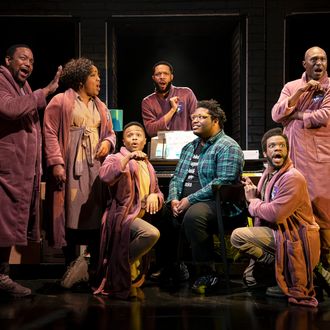
The Pulitzer Prizes, the original remote awards ceremony, announced its winners today, including many groundbreaking works chronicling the African-American experience. Author Colson Whitehead won his second fiction prize in as many books with The Nickel Boys, about two boys at a historically based reform school in Florida. Playwright Michael R. Jackson won the award in drama for his musical A Strange Loop, a creatively staged piece about the self-doubt of a black, gay theater usher and ghostwriter named Usher. In music, avant-garde pianist Anthony Davis’s operatic adaptation The Central Park Five won the prize, six years after Davis began work on the project. Jericho Brown won the poetry prize for The Tradition, his meditation on how mass violence affects the body. And on the journalism side, The New York Times Magazine’s Nikole Hannah-Jones won the prize for commentary for her introductory essay to the magazine’s “1619 Project,” a wide look at the legacy of American slavery. The Prizes additionally gave a special citation to investigative journalist and civil rights leader Ida B. Wells and will donate $50,000 in her name, with more details to come.
Other winners included Benjamin Moser in biography for Sontag: Her Life and Work, W. Caleb McDaniel in history for Sweet Taste of Liberty, and Anne Boyer and Greg Grandin, dually, in general nonfiction for their respective books, The Undying and The End of the Myth. The Pulitzers also gave out its first prize for audio reporting to This American Life for its episode “The Out Crowd.”
New York Magazine picked up a nod for its architecture critic Justin Davidson, a finalist in the criticism category “for architecture reviews marked by a keen eye, deep knowledge and exquisite writing, as exemplified by his essay on Manhattan’s Hudson Yards development.” Davidson, who doubles as Vulture’s own classical-music critic, previously won the prize in criticism in 2002 as classical-music critic of Newsday.


